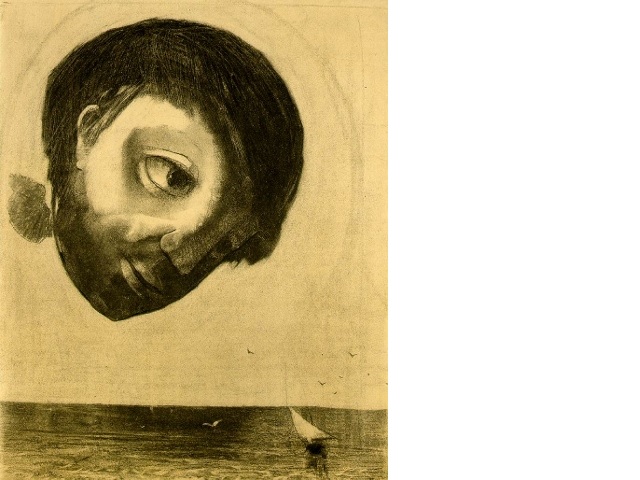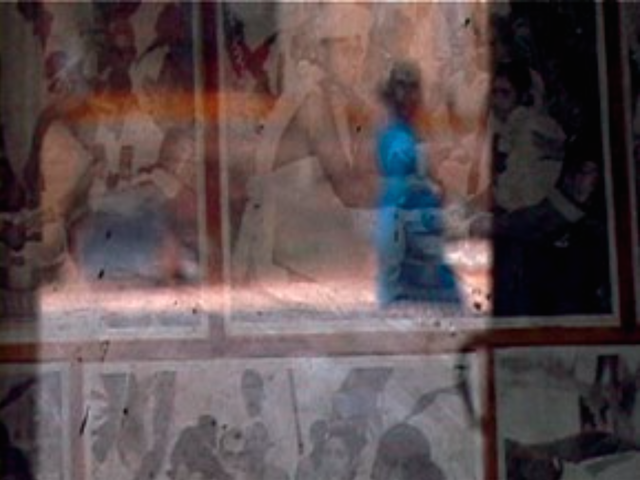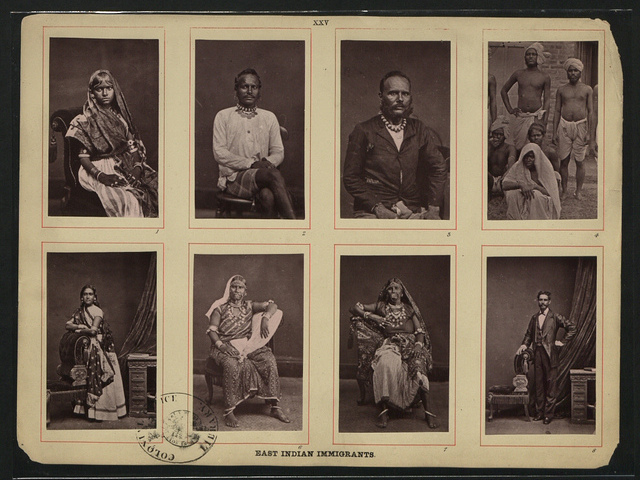“Our Mordor was the same. Our Frankenstein was the same. Our Tinker Bell was the same. We didn’t have to imagine Davy Jones—a graphics company in Silicon Valley was manufacturing him for us. We all picked our visuals from the universal pool. The individual monster was dead.”

September 27, 2012
The morning I heard I’d been shot I was sitting in my office on the second floor looking out the big glass window at the yellow ringlets of a laburnum tree that had gone in a few days from blindingly golden to faded cream, as if washed in rough detergent. Beyond the balding tree, losing its ringlets prematurely in mid-May, the sky was blamelessly blue. In minutes it would begin to bleach and the sun would paint such a glare on it, it would be impossible to look up, even briefly, to catch the full bellies of groaning aircraft swooping down to land.
It was not yet seven in the morning.
I had slipped away early from my darkened bedroom with barely a glance at the sleeping splash of my wife, lying spreadeagled on her stomach, arms and legs akimbo, as if quashed by a giant foot. Brushing my teeth in the dining-room sink I had glanced at the weekend newspapers, full of the excitements of food and cinema, and eschewing the tea Felicia had set to brew, quietly let myself out.
The lane lay in Sunday morning stupor, not a leaf stirring in the row of gulmohurs or the lone peepul. Rambir, our night watchman, had abandoned his post and was probably sleeping in his bed-sized room or doing the stuff one has to in the morning. The only thing moving was the mongrel of the lane, foraging for discarded food in the heaped refuse in the corner. Cast in many shades of brown with a rodent’s long face, one bad eye and one bad leg, he had been christened Jeevan after the nasal, sneering Hindi film villain of the 1960s, by the cloying old uncle of C-1. The old man, Sharmaji, who cracked silly jokes with the colony children and stroked their arms slowly, would stand outside his gate and call out to the children, and if the dog was around, he’d adopt a nasal sneer. The children, eyes averted, mostly sprinted past his house.
Before Jeevan could limp up to me, tail wagging, I rushed to the car and slammed the door shut. For four years I had successfully managed to keep from opening up a relationship with him. That was one thing I could do without.
More relationships.
At the office, the parking lot was pleasingly empty but for a plump green Bajaj scooter, battered and old–head cocked, eyes cracke–resting on its stand. Its owner was sprawled just inside the front door, on the armless sofa in the reception. When I walked in he scrambled to his feet, swaying, making a grab for his unbuttoned trousers.
I said, ‘Motherfucker Sippy, you’ve again been hitting the bottle all night!’
He said, ‘No sir yes sir no sir.’
Sippy looked like he had been masturbating himself to death for the last fifty years. He had the wasted air of stereotype–hollowed eyes and cheeks, thin strands of hair on a pigmented scalp, arms and legs of stick and the wheedling manner of someone looking for just one more rush. He was struggling to align the buttons on his trousers and find the keys to my room at the same time. I slapped his fumbling hand away from the open drawer, and reaching into the jumble of brass and steel inside, picked up my set of four long slim keys anchored to a miniature high-heeled, knee-length brown leather boot. Someone’s mad European fantasy from a foreign catalogue or film? Who, in all of India, thought up such key chains?
When I bounded up the stairs, Sippy was still rummaging purposefully in the drawer. It would be a few minutes before he realized this sequence was over. He was like that, with some kind of delayed-response metabolism. Changing a light bulb, he’d continue to stroke it long after it had come alive. Often, while making repairs in the jungle of wires and fuses in the main junction box under the stairs he would touch a naked wire and get a jolt; we’d all see the wires spark angrily, then, several seconds later Sippy would leap up, clutch his hand and scream, ‘Oh, my mother’s dead! My mother’s dead!’ The office boys called him Uncle Tooblite and everyone shouted their instructions at him twice, thrice, four times. If he was ever offended, he didn’t show it. He always met you with a serious expression and a willingness to do whatever he was told.
When I pushed open the door of my office on the second floor, the phone was already trilling. It was Sippy asking if I’d like some tea. I had barely turned on the lights and pulled open the plastic blinds when the phone trilled again. Sippy. Wanting to know if he should get me a bun-omelette too. The computer had just finished booting when Sippy was back on the line. One omelette or two? I said, ‘Motherfucker, one hundred! And they should all be round like testicles and pulled out of a hen’s ass!’ After the customary delay, he said, ‘Okay sir.’
I waited as the icons lined themselves up at the top and bottom of the screen, like two teams of football players before the start of a match. After the great era of literacy the world was going back to the pre-literate age. For centuries there had been the hunt to find a word for every image, every sensation, every feeling; now we were working at finding an image for every word, every sensation, every feeling. Advertising, television, cinema, photography, computers, mobiles, graphics, animatronics–everything was geared to turn the squiggle of the word into the splendour of image. Across the globe, Photoshop Picassos crouched at their machines marrying unlike images to produce such unlikely images as no word could hope to withstand. The imagination no longer needed the word to negotiate its darkest recesses. The imagination was having its most fantastical meanderings served up in prefabricated images, for all to share. Our Mordor was the same. Our Frankenstein was the same. Our Tinker Bell was the same. We didn’t have to imagine Davy Jones–a graphics company in Silicon Valley was manufacturing him for us. We all picked our visuals from the universal pool. The individual monster was dead. Private passion was dead. Personal grief was dead. Anger was an icon. Love an image. Sex an organ. The future a matrix. If you could imagine it or feel it, it would be shown to youin any colour, from every angle without the exertions of the word. Even god would, finally, be shrunk to size. No larger than the screen. No denser than a pixel.
Terun Tejpal reads from his new book at the Strand Bookstore on Wednesday, October 3. The event, with moderator Hirsh Sawhney, is co-sponsored by Melville House and the Asian American Writers’ Workshop.



